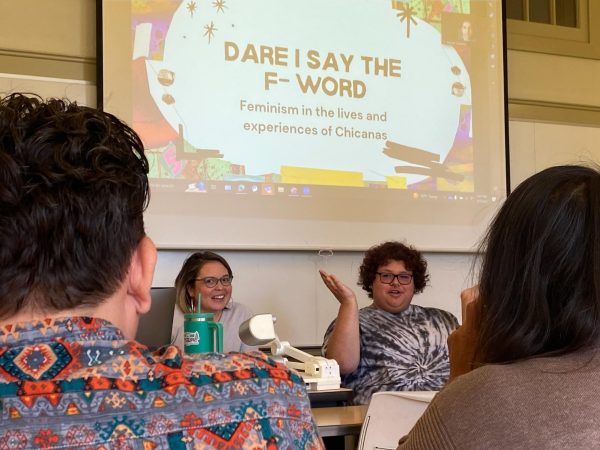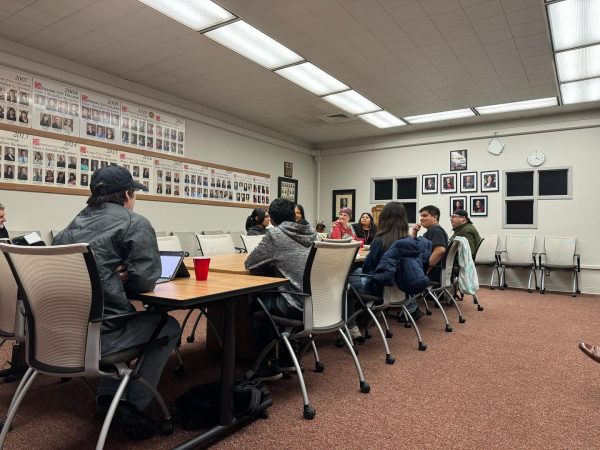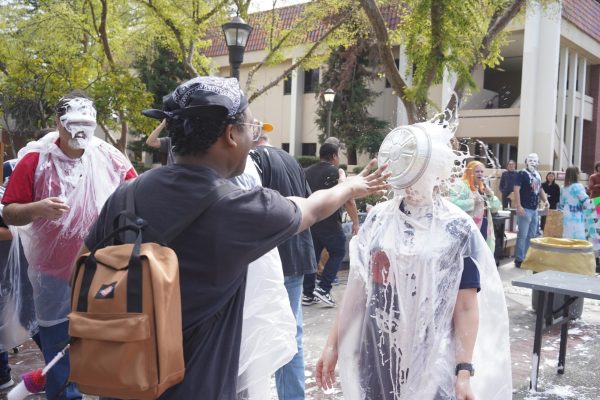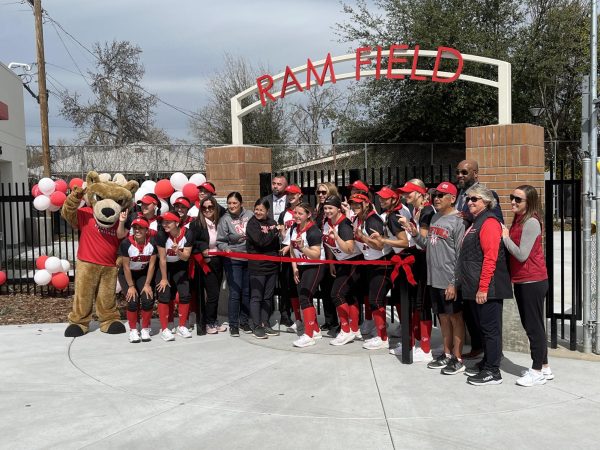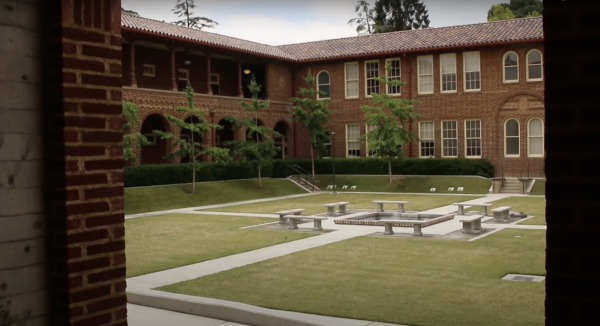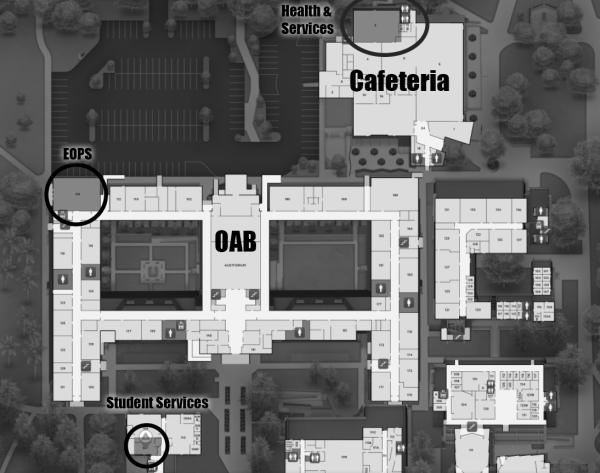Student Government to Launch Initiative to Entice More Students to Serve
For Fresno City College students interested in becoming members of the student government body, petitioning begins on March 9, the first step in the process for candidates before the April 26 election.
Students seeking to serve as part of the ASG receive an instructional packet requiring that they receive 150 signatures before being put on the ballot. After students have enough signatures, they must attend the mandatory orientation on April 12, then attend the Candidates Forum on April 19.
Elections will take place April 26-28 via student e-mail.
Currently, Maizie Lee leads the student government as President. Members of the ASG are hoping to recruit enough students for the upcoming student government in the fall semester.
“Every position is up for grabs, and no position is safe,” said Matthew Scott, a history and political science major who represents special programs as a senator for the Associated Student Government.
While no experience is required to hold office, students must have at least six units during their tenure and must maintain a 2.0 cumulative grade point average, according to the bylaws of the ASG.
Available positions include president, legislative and executive vice presidents, president pro-tempore, the student trustee as well as all 22 senators.
The president, according to the bylaws, presides over the senate and has the power of veto over legislative bills.
The bylaws also dictate that the legislative vice president not only stands in the president’s place during an absence, but oversees and monitors all college committees.
All bills for financing must go through the executive vice president as well as fundraising. The EVP must also approve all requests for payments from the ASG.
The president pro-tempore chairs all Inter-Club Council meetings.
The student trustee sits at all meetings of the State Center Community College board of trustees and then submits a report back to ASG.
Elections Commissioner Danny Yang, a third semester student in business administration, will oversee the entire process from the neutral ground of the Student Union.
The concern the Student Union has about ASG involvement in the elections process comes with how much influence incumbent officers may have that may unfairly sway voters in their favor.
Yang feels like officers may want to push their campaign to bring in votes, but as Elections Commissioner, he says he will “nip it in the bud” by enforcing the bylaws and ensuring candidates are on an even keel.
Doing this, Yang says, will allow him to separate “the wheat from the chaff.”
Yang will examine how interested students are about becoming members of the college’s student government.
Yang will determine who is capable of getting their petitions in, and who is willing to come to orientation and attend the candidates’ forums.
“If you’re not willing to put in the time to do this, you’re not cut out for the position,” Yang said. “We need someone dedicated to the job.”
ASG often has trouble filling positions, but Scott says that promotion has not always been a priority and visibility has been low in the past.
If all positions are not filled during elections, the ASG must fill the empty seats the next fall. “It makes us inefficient because the first few months are spent recruiting to fill in empty positions,” Scott said.
The bills that can bring the changes that students ask for cannot be written without senators to write them, nor can funding be approved for student activities or club functions.
Out of 22 open senator positions last year, there was a point in the Fall Semester where only one had been filled.
Last year, all five students campaigning for office ran unopposed, and many were elected with a single vote.
But those empty positions have to be filled because only senators can write bills to enact change or approve funding.
“In the past, some people thought it would be easier to come in the fall semester instead of going through the elections process,” Scott said, “then have ASG, which was only five members, vote them in.”
One area where ASG currently lacks representation is in its Technology Committee.
“Because of the bureaucratic process, everything goes through committees,” Scott said. “But because we have such a high turnover rate, those governing bodies forget to ask for student representation, and those decisions are then made from a faculty perspective.”
Scott pointed out examples such as the slow networks in the library which may not be resolved because the virtual desktops for the faculty often work with greater efficiency than those for students.
Problems with student computers might get overlooked because there is no one to tell them about it.
He said when he first began as a senator, he was surprised by the bureaucratic process and lack of student representation.
“Everything that happens here [FCC] goes through a committee,” Scott said. “Issues like the bond measure; refurbishing the Math and Science Building; all the way to approving events and changing the curriculum, go through committees before any decision is made.”
But these critical decisions are being made without student input because of low student involvement. Yang is working to remedy the situation by being more inclusive and increase awareness for students who might want to run or simply want to get their voices heard.
Yang will be working with the Public Information Office to send informative emails to all students about not only upcoming elections, but also descriptions of the positions.
Yang said, “If we do the advertising as big as possible, it will give students the initiative to be curious about ASG.”
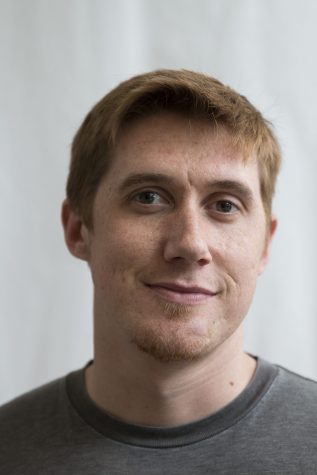
Edward Smith writes for the Rampage and is in his fourth semester at Fresno City College. He majors in Journalism out of a deep love for reporting and...



